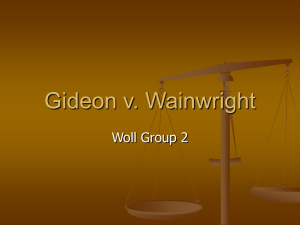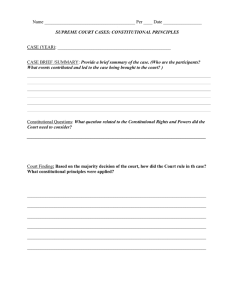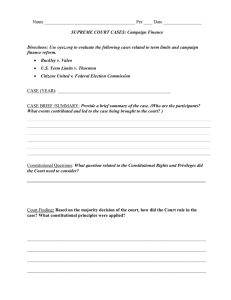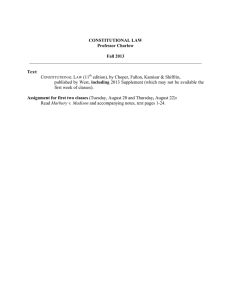Suggested Reading List - University of Richmond
advertisement
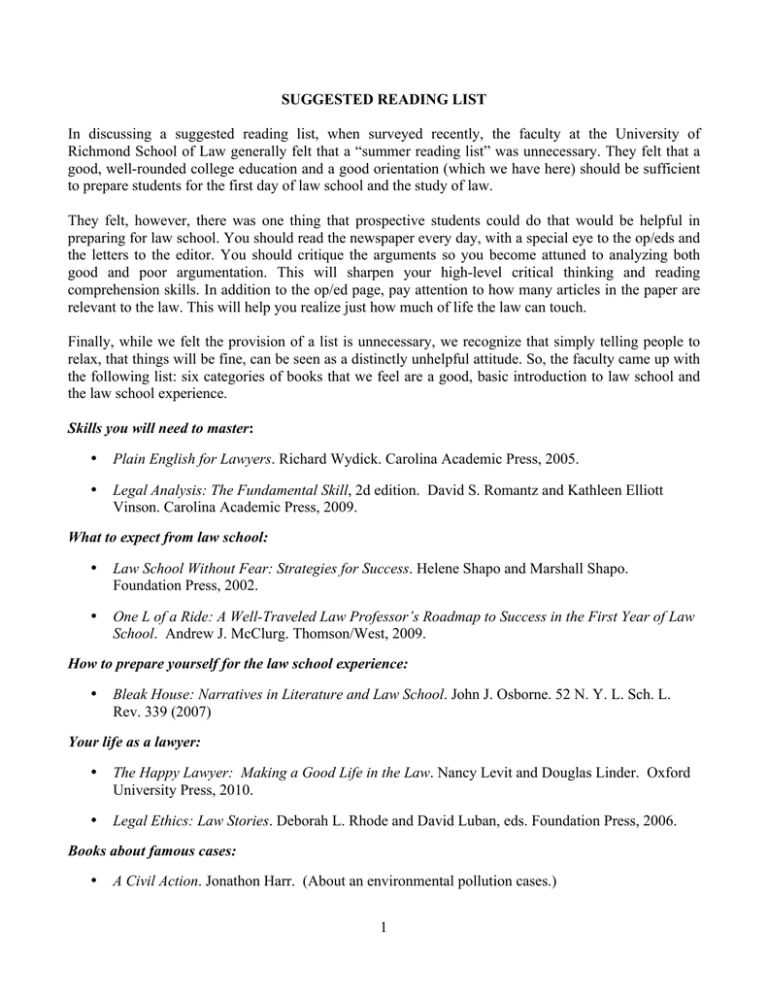
SUGGESTED READING LIST In discussing a suggested reading list, when surveyed recently, the faculty at the University of Richmond School of Law generally felt that a “summer reading list” was unnecessary. They felt that a good, well-rounded college education and a good orientation (which we have here) should be sufficient to prepare students for the first day of law school and the study of law. They felt, however, there was one thing that prospective students could do that would be helpful in preparing for law school. You should read the newspaper every day, with a special eye to the op/eds and the letters to the editor. You should critique the arguments so you become attuned to analyzing both good and poor argumentation. This will sharpen your high-level critical thinking and reading comprehension skills. In addition to the op/ed page, pay attention to how many articles in the paper are relevant to the law. This will help you realize just how much of life the law can touch. Finally, while we felt the provision of a list is unnecessary, we recognize that simply telling people to relax, that things will be fine, can be seen as a distinctly unhelpful attitude. So, the faculty came up with the following list: six categories of books that we feel are a good, basic introduction to law school and the law school experience. Skills you will need to master: • Plain English for Lawyers. Richard Wydick. Carolina Academic Press, 2005. • Legal Analysis: The Fundamental Skill, 2d edition. David S. Romantz and Kathleen Elliott Vinson. Carolina Academic Press, 2009. What to expect from law school: • Law School Without Fear: Strategies for Success. Helene Shapo and Marshall Shapo. Foundation Press, 2002. • One L of a Ride: A Well-Traveled Law Professor’s Roadmap to Success in the First Year of Law School. Andrew J. McClurg. Thomson/West, 2009. How to prepare yourself for the law school experience: • Bleak House: Narratives in Literature and Law School. John J. Osborne. 52 N. Y. L. Sch. L. Rev. 339 (2007) Your life as a lawyer: • The Happy Lawyer: Making a Good Life in the Law. Nancy Levit and Douglas Linder. Oxford University Press, 2010. • Legal Ethics: Law Stories. Deborah L. Rhode and David Luban, eds. Foundation Press, 2006. Books about famous cases: • A Civil Action. Jonathon Harr. (About an environmental pollution cases.) 1 • Gideon’s Trumpet. Anthony Lewis. (About a Gideon v. Wainwright, the case that established the constitutional right to a lawyer.) • Make No Law. Anthony Lewis. (Concerning New York Times v. Sullivan, an important case about press freedom.) • The Buffalo Creek Disaster. Gerald Stern. (Litigation growing out of a mining disaster.) • In addition to these books, Foundation Press has published a series of books that examine ten to fifteen famous cases in a particular area of law. Each chapter in these books focuses on a different famous case, describing the facts and holding of the case, legal and historical context, and the significance of the case. This series includes, Civil Procedure Stories, Constitutional Law Stories, and Business Tax Stories. Books about U.S. constitutional history: • Founding Brothers: The Revolutionary Generation. Joseph Ellis. (Describing six critical events and decisions that shaped the U.S. Constitution.) • There are a number of excellent biographies about leading figures in U.S. constitutional history including: o American Sphinx: The Character of Thomas Jefferson. Joseph Ellis. o John Adams. David McCullough. o Alexander Hamilton. Ron Chernow. 2
